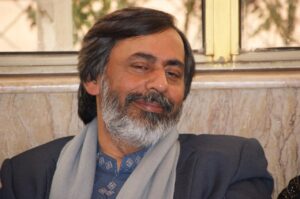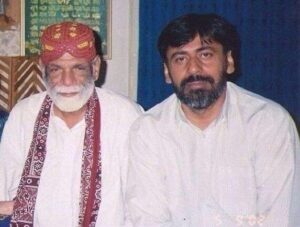Cure ADHD
Introduction
Attention Deficit Hyperactivity Disorder (ADHD) is a neurodevelopmental disorder that affects both children and adults. It is characterized by symptoms such as inattention, hyperactivity, and impulsivity. Managing ADHD can be challenging, but with the right understanding and tools, it’s possible to lead a productive and fulfilling life. In this context, “The Ultimate Remedy,” a unique form of audio therapy, offers a novel approach to complement traditional ADHD treatments.
Introduction to ADHD
ADHD is not just a childhood disorder but a condition that can continue into adulthood. It affects an individual’s ability to focus, control impulses, and maintain attention. This can impact various aspects of life, including academic performance, work efficiency, and interpersonal relationships.
Understanding a Positive & Peaceful Life
ADHD is typically recognized in three subtypes:
Predominantly Inattentive Presentation: Difficulty sustaining attention, following detailed instructions, and organizing tasks and activities.
Predominantly Hyperactive-Impulsive Presentation: Fidgeting, an inability to stay still for long periods, and impulsive actions without forethought.
Combined Presentation: Symptoms of both inattention and hyperactivity-impulsivity.
Each type of ADHD presents its unique challenges and requires a tailored approach to management.
Causes of ADHD
Several factors can disrupt this state of well-being:
- Stress and Anxiety: Daily pressures and worries can erode our sense of peace.
- Negative Thinking: Pessimistic attitudes and thoughts can diminish positivity.
- Lack of Self-Care: Neglecting physical, emotional, and mental well-being can lead to imbalance.
- Environmental Influences: Chaotic or stressful environments can impact our inner peace.
Management Strategies
Achieving and maintaining a positive and peaceful life involves:
- Practicing Mindfulness: Engaging in activities that encourage being present, such as meditation or yoga.
- Positive Affirmations: Regularly practicing positive self-talk to reinforce an optimistic outlook.
- Healthy Lifestyle Choices: Regular exercise, balanced nutrition, and adequate sleep are crucial.
- Building Strong Relationships: Cultivating supportive and meaningful relationships.
The “Ultimate Remedy” An Alternative Approach
Amidst various strategies for fostering a positive and peaceful life, “The Ultimate Remedy” emerges as a unique and supportive tool. This form of audio therapy harnesses the power of sound and intention to enhance well-being.
How to Use The Ultimate Remedy
- Download the Audio: Access The Ultimate Remedy audio from our website for free. Direct links are provided for ease of access.
- Listen as Instructed: Follow the listening instructions to experience the full benefits of this therapy.
- Support and Testimonials: For any inquiries or further information, contact help@mastmasthealers.com. Reading testimonials can offer insights into how others have benefited from the therapy.
Benefits of The Ultimate Remedy
- Therapeutic Sound Frequencies: The audio employs specific frequencies known to promote relaxation and positivity.
- Intention-Based Healing: Combining sound with focused intention enhances the overall therapeutic experience.
Conclusion
A positive and peaceful life is achievable through consistent practice and the right tools. Traditional methods like mindfulness and lifestyle changes are fundamental, but innovative approaches like The Ultimate Remedy can offer additional support and enhancement. By integrating these methods, anyone can navigate towards a more peaceful and optimistic life.
Happy Patients
Years since day one
%
Satisfaction
Testimonial
How to Listen to the Ultimate Remedy:
Download the Ultimate Remedy audio from our website or app. It’s free and accessible to all.
- Choose a quiet, comfortable space where you won’t be disturbed.
- Close your eyes and visualize yourself in the presence of your higher power or the essence of the universe.
- Listen to the audio with great concentration and closed eyes.
- After the audio is finished, open your eyes and take half a glass of water.
- Close your eyes again and say “your name” or a word that represents your belief (such as “God”, “Universe”, or “Love”) three times in your heart.
- Drink the water with closed eyes in three sips.
- For optimal results, it’s recommended to listen to the Ultimate Remedy three times a day (morning, evening, and before sleeping) for seven consecutive days.
About the Creator – Syed Safdar Hussain Bukhari
Introduction and Early Life
Syed Safdar Hussain Bukhari, also known as Kakian Wali Sarkar, was a unique example of kindness, devotion, and tenacity. Born on May 6th, 1940, he dedicated his life to serving humanity and providing relief to those suffering from various ailments.

Social Work and Spiritual Journey
Between 1960-1980, he engaged in social work by undertaking road repairs, establishing schools, and arranging medical supplies in Lilla Town. In 1990, he left his ancestral home and family wealth to move to Lahore, where he comforted the depressed and saddened through mystic dance and music.
The Ultimate Remedy
In 1998, Baba Bukhari’s research led to the discovery of “The Ultimate Remedy,” a blessed audio that he believed could cure physical, psychological, spiritual, and supernatural problems. The remedy involved listening to the audio three times a day for seven consecutive days, followed by a specific water ritual. This method claimed to cure various ailments, including coronavirus, AIDS, cancer, drug addiction, worldly problems, and psychological issues.
Legacy and Death
Baba Bukhari’s research and unconditional love left a lasting impact on humanity, providing positive thinking, peace of mind, health, fearless life, and an example of love and compassion. He passed away on February 8th, 2005, leaving behind a legacy of healing through “The Ultimate Remedy.”

His spiritual successor is Syed Baba Jaan
According to Baba Bukhari (RA), his spiritual successor is Mr. Shakir Uzair, also known as Syed Baba Jaan . As the chosen heir to Baba Bukhari’s spiritual legacy, Syed Baba Jaan carries forward the teachings and practices that have been passed down through generations. Dedicated to serving humanity and promoting healing, Mr. Shakir Uzair continues to spread the message of love, compassion, and the transformative power of the Ultimate Remedy to help countless individuals in their journey towards holistic wellness and personal growth.

